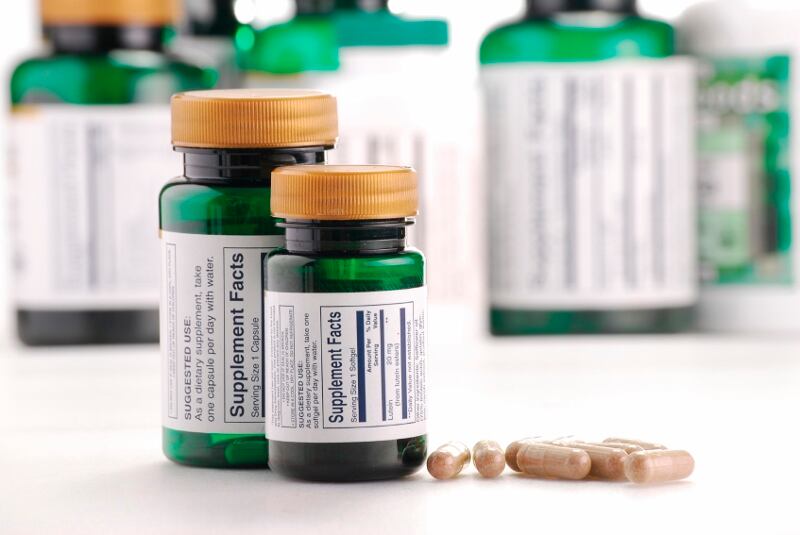During the recent Council for Responsible Nutrition's annual conference in Dana Point, CA, well-known industry lawyers from across the nation were asked to explain what they would change about DSHEA and why. It needs to be stressed that CRN is not calling for any particular changes to the law or for Congress to re-open the law with new legislation at this time, but to stimulate conversation about this important legislative framework.
“I hope our attendees enjoyed the session as much as I did," Steve Mister, CRN's President and CEO, told us. "The ten suggestions for changes to DSHEA were provocative and illustrative that no law is ever perfect. With the benefit of hindsight and experience, we are aware of unintended consequences as well as well-meaning provisions that may not have served their original purpose. I think some of our speakers were particularly astute in recognizing some of the limitations with DSHEA as it was written in 1994. Having these kinds of discussions now will make the industry better prepared for the time when DSHEA is being evaluated for changes. We are better off to be prepared with an array of good ideas for potential revisions and improvements to the law when that time comes.”
The hypothetical exercise provides plenty of food for thought...
Disclaimer: The proposals and recommendations of the speakers were solely their own views, and not official positions of CRN or its members.
1. Raqiyyah Pippins from Arnold & Porter, LLC, proposed that manufacturers should be allowed to add third party literature to their website. There has been an understanding in the past that a two-click policy was in operation but that is clearly not the case anymore. Pippins argued that it could be possible to present third party literature about supplements as long as it was clearly marked that it was for educational purposes. “We could create a disclaimer that says it’s for education only,” she said.
2. Ashish Talati from Amin Talati & Upadhye proposed allowing synthetic botanicals. “Oftentimes before the NDI draft guidance, companies were promoting synthetic botanicals without knowing that FDA didn’t think they should be dietary ingredients,” argued Talati. “They’re nature identical, there’s no biological difference, so why have this distinction? It opens the door for innovation and safety is not the issue,” he said.
3. Julie Hussey from Perkins Coie proposed changing the standard for FDA’s approval of a health claim for dietary supplements to be changed from “significant scientific agreement” to “substantial scientific evidence”.
“Currently the standard is significant scientific agreement,” she argued. “This looks at quality and quantity of scientific evidence. The claim standard is impossible to meet, which is why we have only a dozen or so approved health claims. I propose that the standard be codified in DSHEA to be ‘substantial scientific evidence’. This would remove the consensus requirement.”
4. Jim Prochnow from Greenberg Traurig, LLP, went after the IND/NDI issue. “Changes are needed to the Draconian exclusionary provision of 201(ff)(3) of the FFDCA,” he said, which relates to the prohibition on marketing a dietary ingredient if the substance was previously subject to “substantial clinical investigation” as a drug.
“Does that make sense in the interest of public health and innovation?” asked Prochnow. “No. It is an important provision that we have to deal with.”
Prochnow proposed asking Congress to automatically expire the exclusion at some point in the future, perhaps making it only effective for 10 years from the date that the article was first authorized by FDA’s IND, or stating that it no longer applies if the sponsor does not start a clinical trial within 12 months of getting authorization, or complete a clinical trial within 24 months.

5. Holly Bayne from Bayne & Associates proposed amending the law to create an herbal (phtyo-) medicines category, distinct from “herb or other botanical” ingredients in dietary supplements – provided that certain regulatory /QC criteria are met.
“In 1820, about 600 herbs were listed as medicines in USP,” she noted. “More so than other dietary ingredients, FDA treats them like drugs.
“Also, the US regulatory framework is out of step with regulatory systems in EU, Australia, and Canada, which provide a ‘medicinal’ framework,” said Bayne. “So I propose to create a “carve out” phytomedicine category within the OTC area with product licensing requirements according to rational and appropriate criteria for quality, safety & efficacy.”
6. Wade Ackerman from Covington & Burling, LLP proposed giving FDA the surgical ability to take enforcement action against repeat offenders of GMPs.
“If you did it in a surgical way, you would get to the issue of the DoJ sitting on its hands, and allow FDA to take the issue,” said Ackerman. “Obviously, you would want to build walls around this – it’s only for repeat offenders, and only for GMPs.”
7. Katie Bond from Kelley, Drye & Warren, LLP said the findings of the Bayer case should be codified. DSHEA should be revised to expressly harmonize the DSHEA substantiation requirement and the substantiation requirements under Sections 5 [Unfair or Deceptive Acts or Practices] and 12 [prohibits the dissemination of misleading claims for food, drugs, devices, services or cosmetics] of the FTCA, effectively codifying the court’s decision in US v. Bayer, she said.

8. Ivan Wasserman, who recently joined Amin Talati & Upadhye, called for the repealing and replacing of the disclaimer for structure/function claims (“These statements have not been evaluated by the Food and Drug Administration. This product is not intended to diagnose, treat, cure, or prevent any disease”)
“I think that statement has been a disaster,” he said. “For the same claim on a food product no disclaimer is needed, but it is required for a supplement. And nobody reads it any way.”
9. Kevin Rising from Barnes & Thornburg, proposed a revision to the NDI provision of DSHEA to make explicit in the statute when an ingredient is: “present in the food supply”; has been chemically altered; and when a manufacturing change is substantial enough to create a new dietary ingredient
10. Last but by no means least, Todd Harrison from Venable proposed a change to the grandfathered date for ingredients. “The industry needs to embrace change, because if we don’t change will embrace us,” he told attendees. “FDA now wants to create a positive list for old dietary ingredients (ODIs). Maybe in 1994 that would have been a good idea. Maybe 1995. Maybe 1996. But we’re 22 years later.
“We have to embrace change and one of the changes is to go back to Congress and say, ‘FDA didn’t do its job for 22 years. A lot of the problems are because of things that FDA didn’t do’. We should move the grandfathered date to August 1, 2016, the date the revised NDI draft guidance was issued.”
What do you think? Feel free to leave your comments below.

